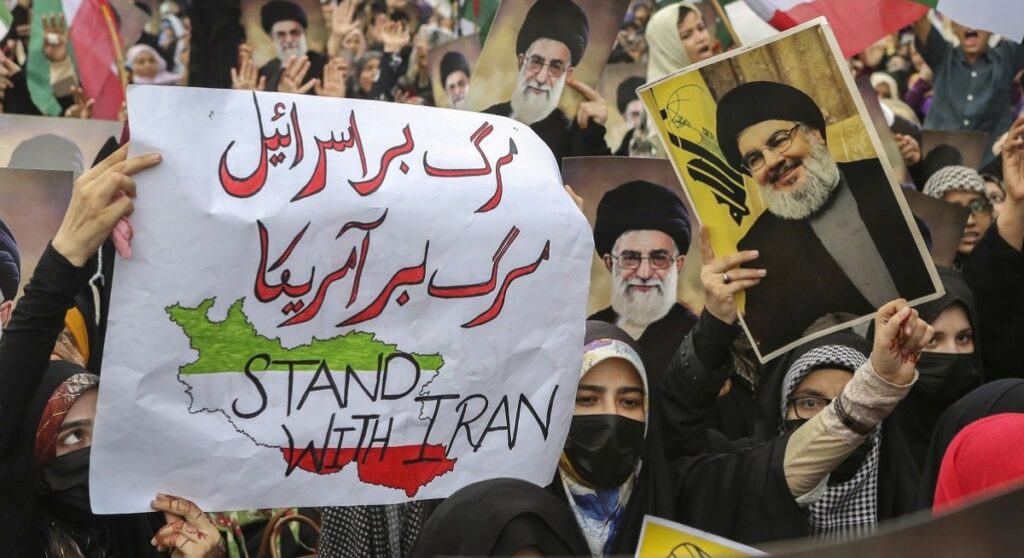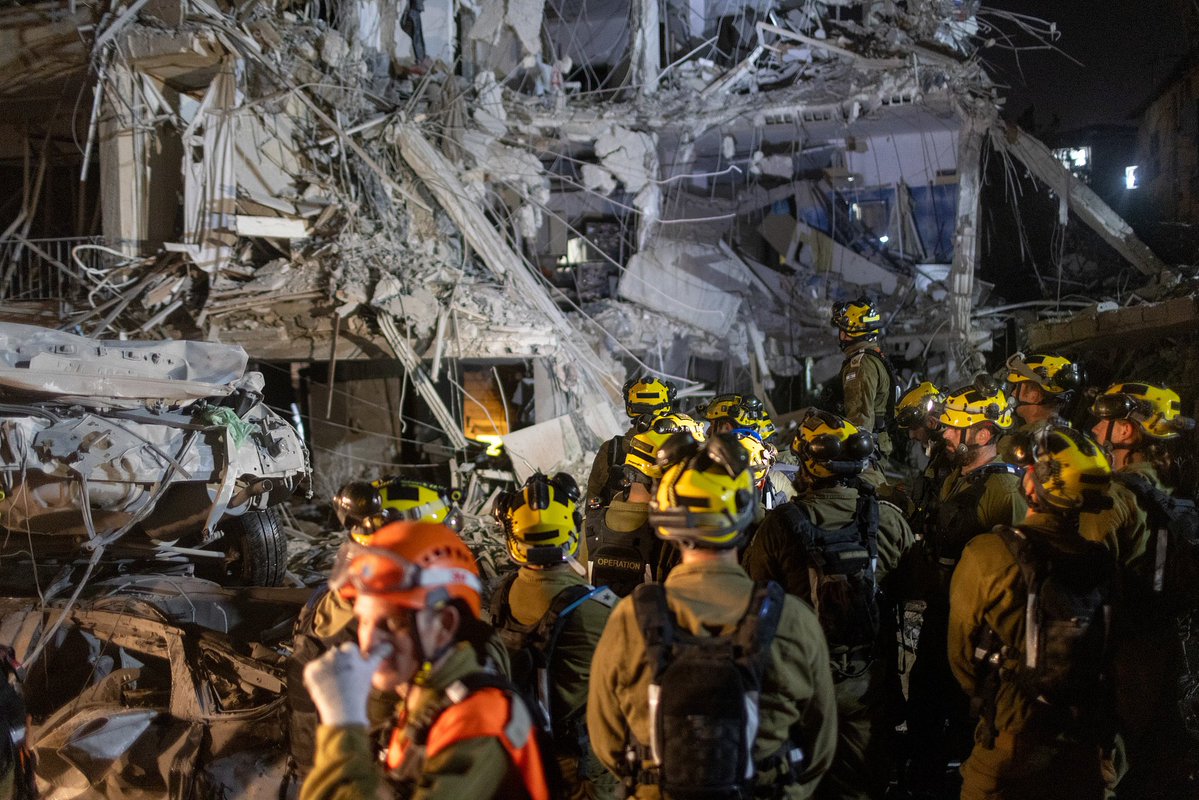Endgame Iran
by: Derwin Pereira
Published in The Edge (Singapore)
Asian Viewpoint, June 30, 2025
United States President Donald Trump’s welcome announcement of a ceasefire between Israel and Iran shows the extent of American power in the Middle East. What is astonishing is that the announcement comes in the wake of America’s own entry into the conflict. That Washington could still get the two primary sides to agree to a cessation of hostilities demonstrates the latitude enjoyed by superpower America.
America entered the Israel–Iran War with a thunderous display of its military might in the form of “bunker-buster bombs” never deployed before. Their use is akin, metaphorically, to the atomic bombing of Hiroshima and Nagasaki that concluded World War II. The outcome might be less dramatic this time, but the historical analogy still holds. The US today is not prepared to lose its existential ally, Israel, any more than it was prepared to capitulate to the Axis powers in 1945. Therein lies the global gravity of the unfolding situation in the Middle East.
America bombed Iran’s nuclear facilities, including those in Fordow, Natanz and Isfahan. It fired submarine-launched missiles at the sites in Natanz and Isfahan, and dropped several bunker-buster bombs on Fordow and Natanz, meant to take out nuclear installations buried deep underground. The bunker-busters are GBU-57 Massive Ordnance Penetrator bombs, which have never been used in combat until now.
A turning point
Clearly, this is a turning point in the military history of the world. The obvious analogy is with America’s entry into World War II following the Japanese attack on Pearl Harbor in December 1941. The US ended the Pacific War by dropping atomic bombs on Hiroshima and Nagasaki in August 1945, bringing to a global conclusion the defeat of the Axis powers in Europe.
Iran invited its troubled fate this month not by repeating its usual calls for America’s de-struction — a slogan it has shouted since the 1979 Revolution, though never credibly, given America’s overwhelming strength. Instead, it courted disaster by turning its militarised hatred toward Israel, a much smaller nation by territory and population, forgetting Israel’s deep and enduring bond with the US.
Iran’s nuclear weapons programme and its ballistic missile capabilities were a dagger drawn and pointed at the heart of Israel, the extant site of the origins of Judeo-Christianity, which sustains the national purpose and military momentum of America and many other Western countries to this day. Just as Japan challenged the territorial integrity of America and, by extension, the democratic world in 1941, Iran has worked overtime to challenge the existence of Israel — openly and unwaveringly — by calling for the physical obliteration of the Jewish state from the cartography of the Middle East. Were it to occur, the destruction of Israel would contribute to wiping out America’s inherited religious footprint in the Middle East, the region whence it derives its provenance via Israel.
So, America reacted viscerally. The reaction is not about oil, and not even about Iran, but about America’s extended national identity. Israel is crucial to America’s self-identity. Iran is but a regional appendage. Hence, Iran would have remained untouched had it not trespassed into the hallowed precincts of Israeli–American communion.
In that spirit, Israel has acted with the blessings of America during the current crisis. The two countries have differed over tactics but not over strategy. At a minimum, that strategy involves Iran’s repudiation of nuclear weapons and the ballistic missiles programme; at the maximum, the theocratic regime that rules Iranians must reject its delusions of commanding the destiny of the Middle East through weapons of mass destruction.
Unfortunately, Iran’s leadership appears unable to grasp the drift of history. Contemporary times show how revisionist Iran’s ideological forebears in Iraq, Libya, and Syria failed to realise that their time was up when their hatred for Israel blinded and paralysed them into believing that their unremitting hostility towards the Jewish state would convince the US, which is not a Jewish state itself, to strike separate strategic deals with them at the expense of Israel.
The opposite occurred. The US and Israel both separately and jointly won when Saddam Hussein of Iraq, Muammar Gaddafi of Libya, and Bashar al-Assad of Syria fell ingloriously, one by one, all of them toppled like statues that bore mute witness to the wrath of countervailing American power. Iran should have received that message. It chose not to.
The result was to suffer the might of the US, which has made clear once again its deterrent ability to hold back hostile regimes in the Middle East. Other hostile regimes in the world, including those in Pacific Asia, will take note of this display of American power. It is difficult to imagine the ruling cabal in North Korea celebrating the American attacks on Iran. China, too, will have to take the American will for deterrence seriously.
However, what comes next will be as important as what has occurred until now.
Iran is no pushover. The clerical regime might be faulted for being an anachronism in an age in which secular democratic politics is the norm of global legitimacy, but it cannot be discounted for its staying power as a state. The ayatollahs take their guardianship of Iran personally — because they equate their rule with the longevity of the 1979 Revolution — and will do everything in their power to sustain the momentum of that anti-Western revolution.
Immediately after the American strikes, commentators noted that while the bunker-busting bombs and the missiles might have destroyed the infrastructure of the nuclear facilities, there was no way of knowing whether Iran, foreseeing the attack, had removed its enriched uranium stockpile elsewhere. It would be asking too much of human disingenuity to think they had not done so.
The Iranians are an extremely intelligent people who, through history, have left an indelible mark on literature, philosophy, music, and science. They have not done so by being fools. They have done so because of their ability to survive hostile change. The latest challenge from the Americans is but a reminder of the need to overcome it with the accumulated resilience of the Persian spirit.
Regime change
Surely, Iran can continue its Persian journey without the ayatollahs who hijacked the country’s history in 1979. That possibility remains. Trump has alluded to the possibility of regime change. But regime change in Iran would need the concurrence of the Iranian people, not a directive from America. Many Iranians are against the confessional regime that promises them everything in the hereafter and gives them very little here.
The everyday material sufferings of Iranians are compounded by the structural regimentation of a society that is dictated from above and controlled on the ground by the religious police. They enforce patriarchal rules which are gendered against women, to say nothing of those of other sexual persuasions. The public hanging of gays constitutes the most violently egregious denial of alternative sexual realities and their attendant, basic human rights. Iranians accept these things, but this does not mean that they agree with them. Many of them would be glad to be free of a dictatorship in religious garb.
However, needing change and achieving it are two different things. In Iraq, the introduction of American ground forces following the aerial campaign against Saddam Hussein’s army changed the course of national history. It is unclear whether Americans were ever willing to repeat their expeditionary adventure in Iran. If “no” regime change is a pipe dream; if “yes” the next American initiative following the ceasefire remains to be seen.
In the meantime, the possibility arises that Iranians may witness the appearance of a reformist clerical regime, which is contrite in the knowledge of the harm it has inflicted on its people, but which still hopes that citizens will rally around it because both rulers and ruled fly the same Iranian flag. Nationalism should never be underestimated as a force in politics — certainly in peace, and much more so in war.
After the 12-Day War
In the aftermath of the 12-day Israel–Iran War, there are several lessons that will outlast the course of the immediate peace following the ceasefire. First, America’s intention and ability to intervene in Middle Eastern affairs, and those of Asia at large, should not be doubted. Second, Israel is a strategic extension of the US in a way that hardly any other country is, because the Israeli–American relationship is an existential one founded on a shared Judeo-Christian heritage. Third, countries like Iran that threaten the core interests of the United States are asking for trouble if they are not as powerful as the US — and no country currently is.
Endgame Iran is less an ending than an affirmation: the arc of power still bends toward Washington.
The writer is founder and CEO of Pereira International, a Singapore-based political and strategic advisory consulting firm. An award-winning journalist and a graduate alumnus of the Kennedy School of Government at Harvard University, he is also a member of the Board of Inter- national Councilor’s at the Center for Strategic and International Studies in Washington DC. This article reflects the writer’s personal views
Endgame - Iran


